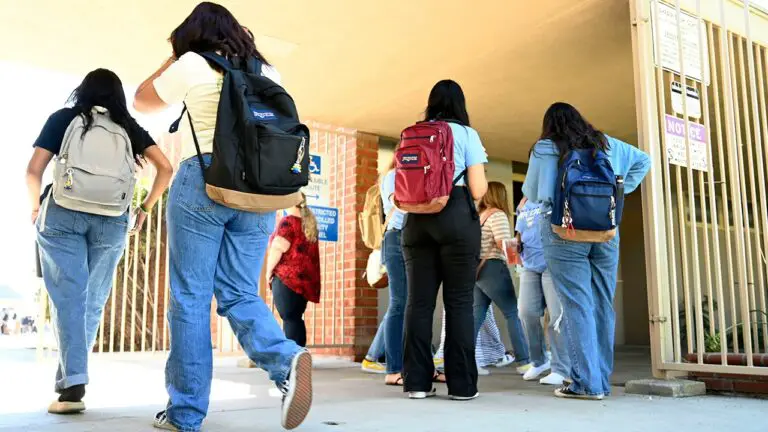School Boards Sue Tech Giants Over Youth Mental Health Crisis
More than 200 school boards across the United States have united in a lawsuit against four major tech companies, claiming that their social media platforms have contributed to a significant mental health crisis among American youth. The lawsuit involves Meta (owner of Facebook and Instagram), ByteDance (owner of TikTok), Snap Inc. (owner of Snapchat), and Google (owner of YouTube). The lawsuit contends that these platforms are responsible for worsening mental health issues in young people, including anxiety, self-image problems, and even thoughts of suicide.
Unified Legal Action
The Charlotte-Mecklenburg Board of Education in North Carolina recently joined the legal effort against these tech giants. The lawsuit is consolidated into one case due to its common issues across various school boards. Philip Federico, an attorney representing the Charlotte-Mecklenburg School Board, revealed that more than 200 school boards have filed lawsuits, with many others considering similar actions.
The Timeline
The lawsuit’s initial complaint was lodged in 2022, spanning 279 pages of allegations. This legal action has gained momentum as the discussion around youth mental health and the impact of social media has intensified.
Tech Giants’ Alleged Role
Experts and school boards assert that the past decade has witnessed a rise in mental health challenges among young individuals. This increase corresponds with the growing use of social media platforms among this age group. Social media companies are now accused of exploiting young users through addictive algorithms, appearance-altering features, and rewards such as “likes.”
COVID-19’s Influence
The COVID-19 pandemic further aggravated youth social media addiction. With remote learning becoming the norm, children spent more time online without the usual guidance and moderation from teachers and counselors present during in-person learning.
Expert Warnings
U.S. Surgeon General Dr. Vivek Murthy issued an advisory warning about the connection between social media and youth mental health issues. Harmful content exposure, disrupted sleep, and decreased face-to-face interaction have all contributed to what Dr. Murthy calls a national youth mental health crisis.
Legal Response
In response to the lawsuit, tech companies have cited Section 230 and First Amendment protections. However, plaintiffs argue that these legal protections are unrelated to the alleged harm these platforms have caused to young users.
The Road Ahead
The lawsuit’s primary goal is to prompt changes in how social media companies operate. The hope is to influence these platforms to adopt healthier practices, curbing addictive algorithms and promoting positive mental health among their users.
Challenging the Status Quo
The lawsuit emphasizes the negative impact of social media on children’s mental and emotional well-being. It points out how “likes” and other features contribute to disconnection, unhealthy comparisons, and even harms to mental and physical health.
Company Responses
While Google has emphasized its commitment to child safety on its platforms, Meta, Snap, and TikTok have not issued official statements regarding the lawsuit.
Looking Forward
The lawsuit reflects a growing concern among school boards about the mental health of young individuals, exacerbated by social media platforms. The legal action seeks not only to address the negative impacts but also to redirect resources towards educational initiatives.
Conclusion
With social media’s pervasive presence in modern society, the lawsuit aims to pave the way for a healthier relationship between youth and these platforms. As technology continues to shape our lives, the conversation around its effects on mental health will remain a critical aspect of public discourse.

